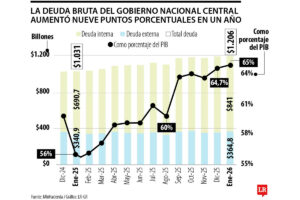The outcome of this year’s U.S. election could have a big impact on taxes, Social Security and health care policy. What should investors know?
As the 2024 general election in the U.S. draws closer, many investors want to know how the outcome could impact their financial lives. Morgan Stanley’s Global Investment Office believes the policies that emerge post-election on taxes, Social Security and health care could significantly shape investment and financial-planning strategies in the coming years. Here are answers to three of the top questions we’re hearing from clients.
How could my tax situation change?
Key provisions in the Tax Cuts and Jobs Act (TCJA) are set to expire at the end of 2025, and taxes could rise for some, if certain provisions are not extended. For example:
- Individuals could see higher income tax rates that revert back to 2017 levels.
- The standard deduction could fall to about $13,000 for joint married filers, from $24,000.1
- The estate tax exemption could decline to $5 million per decedent, from $10 million.1
- The exemption amount for the alternative minimum tax, which affects some high-income taxpayers and limits certain deductions and credits, may be cut to $86,000 from $133,300 for joint married filers in 2024.
The new Congress will be tasked with reforming the tax code in 2025. However, both Democrats and Republicans have strong interests in keeping certain taxes low, so it’s likely that Congress will take a measured approach to which provisions will be extended and which will lapse.
If individual tax rates do increase, tax-advantaged investments may outperform amid potentially heightened investor demand for them. For example, the lower tax rate on preferred securities’ dividends, as well as municipal-bond interest payments’ exemption from federal income taxes, could make both types of assets more attractive to some investors.
How might changes to Social Security affect my retirement?
Social Security, a critical safety net for more than 66 million Americans, is under pressure as the number of workers (whose taxed wages help fund the program) gets smaller relative to the number of people receiving benefits. According to a June 2023 Congressional Budget Office report, Social Security revenues are projected to cover just 75% of the program’s scheduled outlays by 2034.
The 2024 election could thrust the issue of Social Security insolvency back into the spotlight, with the major parties offering different solutions. Democrats, for their part, have proposed a new tier of wage tax for individuals with incomes above $400,000, while some Republicans have suggested raising the age at which people become entitled to full Social Security benefits, known as “full retirement age” (FRA), from 67 to 70.
A higher FRA could motivate some investors to increase their retirement savings if they have been counting on Social Security to help fund living expenses in retirement. Investors concerned about their Social Security benefits—or who simply want to shore up their nest egg as retirement approaches—may opt for investments aimed at preserving capital, such as U.S. government bonds, investment-grade corporate credit and municipal bonds, as well as certain types of annuities and cash equivalents.
Will policy changes affect any industries in the U.S.?
Among the election outcome’s possible impacts on U.S. stocks, the implications for the health care sector could be significant. Health care policy remains a top concern among voters, with the major parties taking divergent views over issues like drug costs and access to medical care. Some Republicans, for example, may take aim at the Affordable Care Act’s (ACA) state-exchange insurance system post-election, while Democrats are almost certain to continue supporting it.
Also likely to be in focus is the recently passed Inflation Reduction Act (IRA), which allows the federal government to negotiate with pharmaceutical companies on prescription drug prices, a provision Democrats are likely to continue to support as they call for lower drug prices amid rising medical costs.
Here’s why the outcome may matter to investors:
- ACA: The law may face scrutiny in a GOP-led government, but an unwinding of the existing state exchanges is unlikely. In a Democratic-win scenario, lawmakers are likely to continue to support the ACA’s policies, which could benefit health care stocks like managed-care companies and their beneficiaries, such as retail pharmacies and certain insurance providers.
- IRA: While a Republican-favored outcome might benefit pharmaceutical makers, a Democratic-led government may take further action to curb prescription drug costs. This could weigh on pharmaceutical stocks, but also create attractive entry points for investors on the hunt for value-oriented opportunities in the otherwise robust pharmaceutical sector.
Preparing for a New Policy Environment
With the election still months away, much can change. Even so, early preparation may help investors navigate the outcome.







